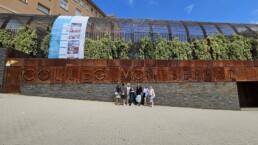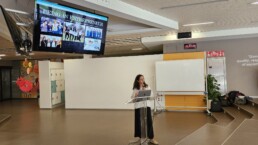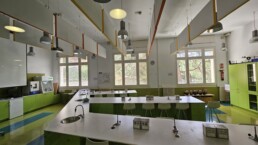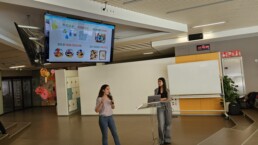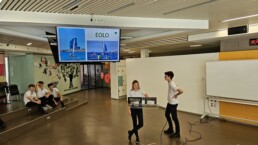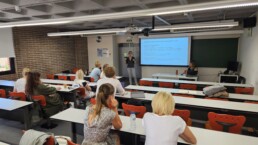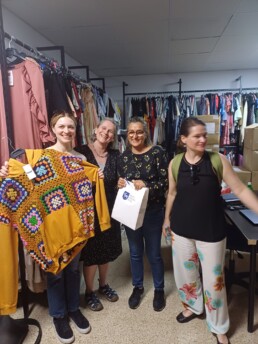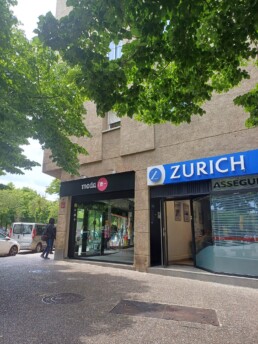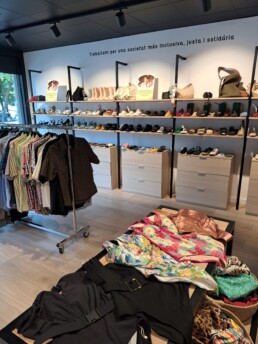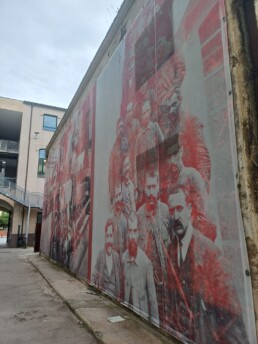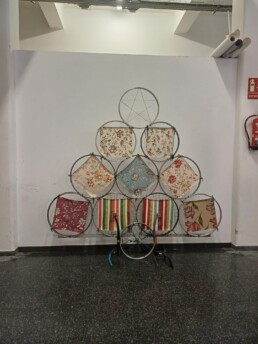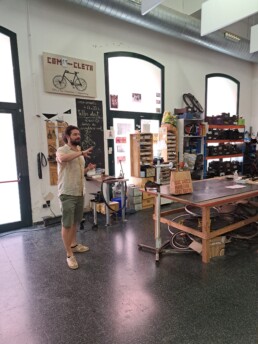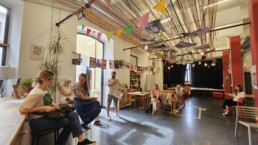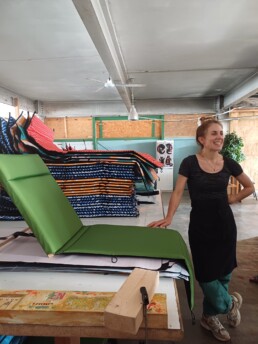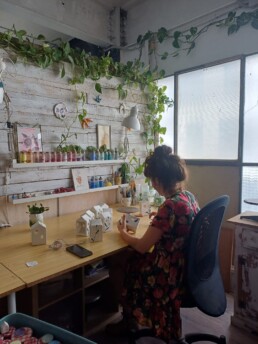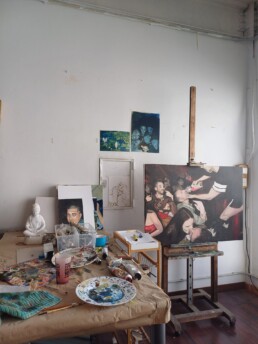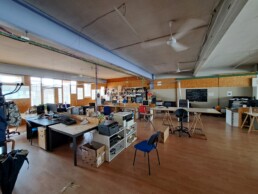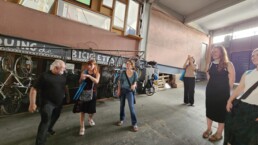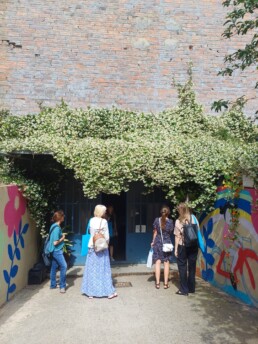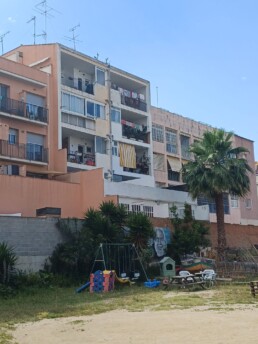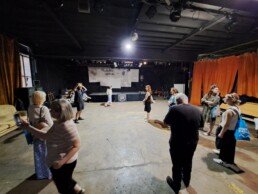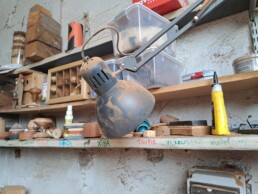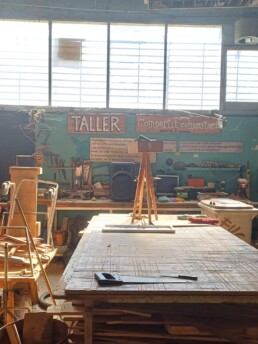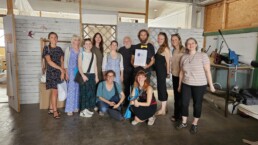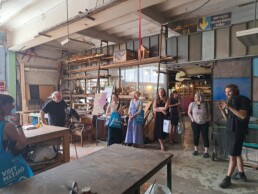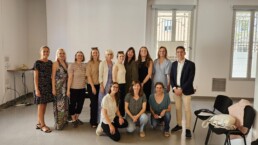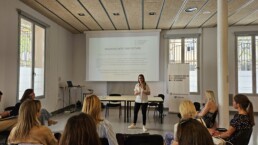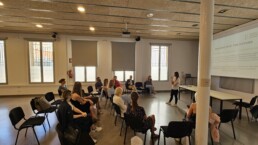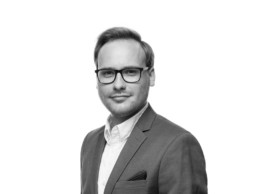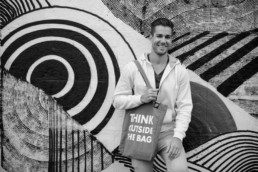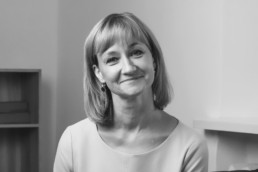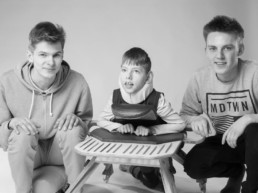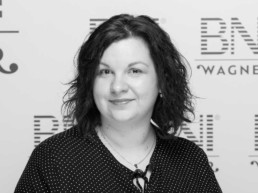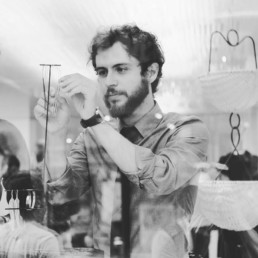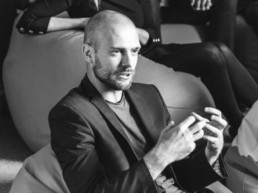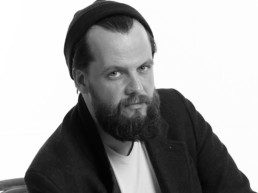Spain – a country to enjoy the sun and gain experience of social entrepreneurship
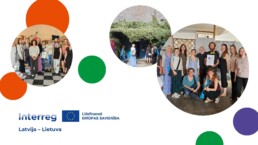
From May 28th to 30th, the Social Entrepreneurship Association of Latvia, together with the Zemgale Planning Region, Rokiškis Municipality, and the Lithuanian Social Business Association, experienced an intensive program visiting various social enterprises and educational institutions in three Spanish cities – Barcelona, Girona, and Mataró.
One of the most remarkable visits of the trip was to Col-legi Montserrat College, where students are taught a subject on social entrepreneurship. The teacher of the subject has previously worked in the business field herself, so her personal investment and interest in the implementation of the educational program are noticeably evident.
The young people, who are potential social entrepreneurs of the future, practically go through all the steps of creating a company during the course, from its inception to its dissolution. As a result of the studies, students, divided into pairs, create a real social enterprise that has its own product or service. Listening to the students’ stories and seeing the presentations of their enterprises, we observed that the young enthusiasts are very passionate about the social enterprises they have created and proudly showcase their products, such as soaps made from olive oil residues, an app for people with Alzheimer’s, a foldable coffee cup made from recyclable materials, and an app that connects new psychiatrists with patients. Some students even managed to quickly sell some of their products to us.
Afterwards, we visited the International University of Catalonia (Universitat Internacional de Catalunya), which actively collaborates on various projects related to social entrepreneurship, conducting research on why social enterprises fared better during the crisis than traditional businesses, as well as seeking various innovative solutions surrounding social problems. We discussed aspects of social entrepreneurship legislation in different countries and analyzed successful and not-so-successful practices.
The university emphasized that Col-legi Montserrat is an excellent example of how to include content about social entrepreneurship in youth education and that everyone should strive for such a model. However, this does not mean that such an advanced social entrepreneurship education content is present throughout Spain.
In the city of Girona, we visited the second-hand clothing store “Moda-Re,” which offers employment to socially vulnerable women, with special attention to immigrants from war-torn countries. The company not only provides job opportunities and salaries in a foreign country but also arranges all the necessary residency documents.
Similar to second-hand clothing stores in Latvia, the received clothes at Spain’s “Moda-Re” store are carefully sorted. Those that are unsuitable for immediate sale are repurposed into new clothing items.
In an industrial district of Girona, the local community has transformed an abandoned factory building into a bohemian meeting space where various community-building and cultural events take place. The walls intentionally retain the “breath” of the past with graffiti and images of the factory workers from that era, whose eyes watch over the people who come here to socialize, meet friends, or enjoy the music of local artists. In the other room, there are bicycle repair and sewing workshops where, on specific days and times, people can come and repair their broken dress or bicycle for free.
The city of Mataró surprised us with a cooperative located in an impressively large yet surprisingly cozy garage. This space is equipped not only for car repairs but also has a lovely kitchen where you can brew coffee. There is a stage, various workshops in adjacent rooms, and a garden in the courtyard with a separate wooden house for a yoga studio.
On the second floor of the garage, there is a circus and acrobatics studio for children and adults, where classes are regularly held. We were also given the opportunity to watch as aspiring circus artists performed somersaults and tricks to music while hanging from ropes. The top floor of the building houses artist and designer studios — co-working spaces where they have the opportunity to network and exchange creative ideas daily, with plenty of room for brainstorming and creating their products. We met an artist (brand Colorin Colorado Design) who paints porcelain dishes, and a designer (brand Fiaca Barcelona) who has created special, easily portable summer lounge chairs that can be carried to the beach as a shoulder bag, unfolded for use, and then folded back up to carry home as a bag.
During the trip, we visited not only educational institutions and social enterprises but also local municipalities in Mataró and Girona. A great example we encountered in Mataró is the Union of Cooperatives Foundation of Mataró, which was established in 1927 by the merger of four cooperatives, one of which is the work integration café “Cafè de Mar” where we had the opportunity to have lunch. It is possible to become a member of the union, becoming part of a larger network of social enterprises. By collaborating, new entrepreneurs can learn from the experience of veterans, while all work together to develop the field of social entrepreneurship at the regional level.
We also got to know XMESS, an association of municipalities that works to develop the social and solidarity economy in their regions. It was truly inspiring to hear that municipalities, driven by their own initiatives, are coming together and actively promoting the development of this sector. XMESS assists municipalities by providing consultations and creating a toolkit for how municipalities can support participants in the social and solidarity economy.
Spain has taken a step forward—they are discussing on a broader scale, not only about social entrepreneurship but also about the social and solidarity economy.
The exchange trip took place as part of the RE:IMPACT project “Improving the Social Entrepreneurship Ecosystem in Zemgale and Northern Lithuania,” where educational materials and guidelines for schools on social entrepreneurship are currently being developed. Additionally, exchange trips between social entrepreneurs and public sector representatives will be organized, and an information campaign for the broader public will be promoted.
———————————————————————————————————————
This publication was created within the framework of a project co-financed by the European Union’s Interreg VI-A Latvia-Lithuania Programme 2021-2027. The content is the sole responsibility of the Latvian Social Entrepreneurship Association and may not reflect the views of the European Union.

